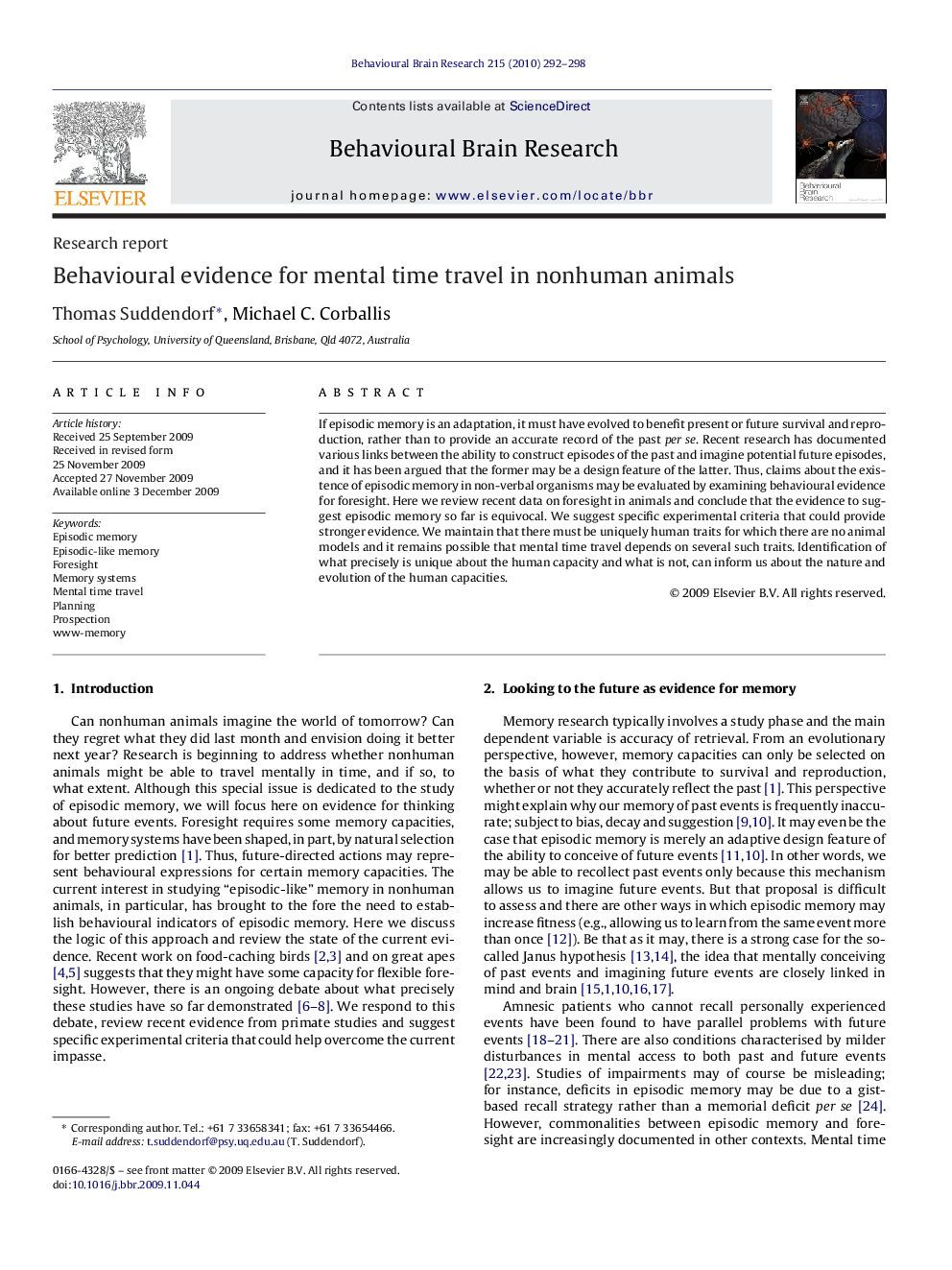| Article ID | Journal | Published Year | Pages | File Type |
|---|---|---|---|---|
| 4314078 | Behavioural Brain Research | 2010 | 7 Pages |
If episodic memory is an adaptation, it must have evolved to benefit present or future survival and reproduction, rather than to provide an accurate record of the past per se. Recent research has documented various links between the ability to construct episodes of the past and imagine potential future episodes, and it has been argued that the former may be a design feature of the latter. Thus, claims about the existence of episodic memory in non-verbal organisms may be evaluated by examining behavioural evidence for foresight. Here we review recent data on foresight in animals and conclude that the evidence to suggest episodic memory so far is equivocal. We suggest specific experimental criteria that could provide stronger evidence. We maintain that there must be uniquely human traits for which there are no animal models and it remains possible that mental time travel depends on several such traits. Identification of what precisely is unique about the human capacity and what is not, can inform us about the nature and evolution of the human capacities.
